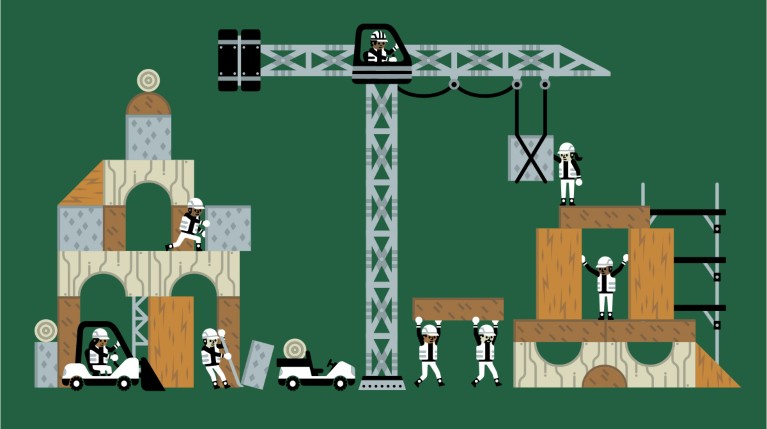- Katharine Sanderson is a freelance writer based in Cornwall, UK.
You can also search for this author in PubMed Google Scholar

Our built environment — from houses to offices, schools and shops — is not environmentally benign. Buildings and the construction industry are, in fact, the world’s biggest consumer of raw materials and contribute 25–40% of global carbon dioxide emissions (F. Pomponi & A. J. Moncaster Clean. Prod. 143, 710–718; 2017). Making buildings part of a circular economy that minimizes the waste of materials could therefore yield huge environmental rewards. Conversely, failure on this front could have dire consequences.
Access options
Access Nature and 54 other Nature Portfolio journals
Get Nature+, our best-value online-access subscription
Subscribe to this journal
Receive 51 print issues and online access
196,21 € per year
only 3,85 € per issue
Rent or buy this article
Prices vary by article type
Prices may be subject to local taxes which are calculated during checkout
Nature 611, S18-S19 (2022)
This article is part of Nature Outlook: The circular economy, an editorially independent supplement produced with the financial support of third parties. About this content.
Related Articles
Subjects
- Sustainability
- Materials science
- Energy
- Green chemistry
Latest on:
Sustainability
Waste management won’t solve the plastics problem — we need to cut consumption
News & Views 04 SEP 24

Light bulbs have energy ratings — so why can’t AI chatbots?
Comment 21 AUG 24
Monitor soil health using advanced technologies
Correspondence 23 JUL 24
Materials science
A polymer-like ultrahigh-strength metal alloy
Article 04 SEP 24

Natural acid makes super-sticky eco-friendly glue
Research Highlight 29 AUG 24

Inside China’s race to lead the world in nuclear fusion
News Feature 28 AUG 24

Live music is a major carbon sinner — but it could be a catalyst for change
Editorial 04 SEP 24

Inside China’s race to lead the world in nuclear fusion
News Feature 28 AUG 24

The cool technologies that could protect cities from dangerous heat